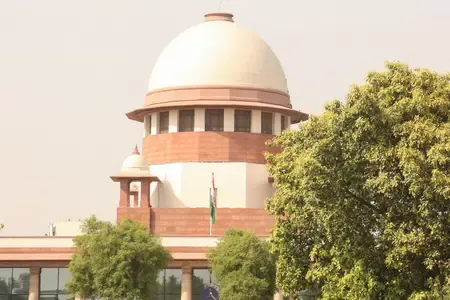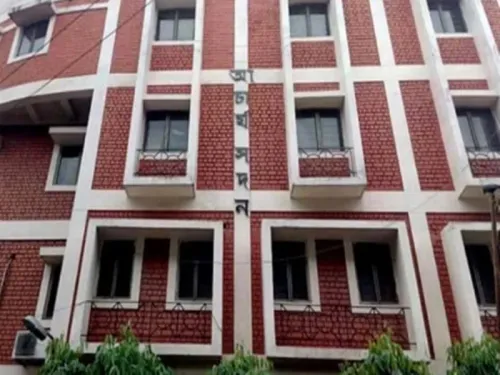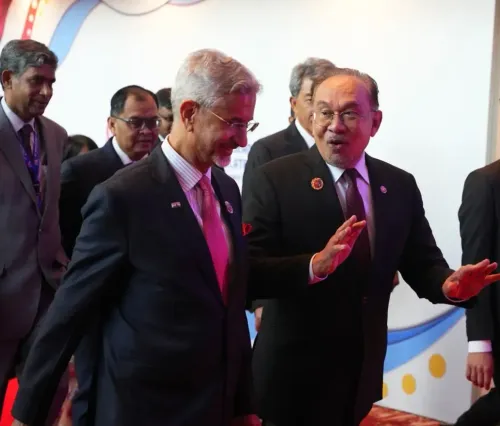Will the Centre Maintain Its Commitment Regarding the Waqf (Amendment) Act?

Synopsis
Key Takeaways
- The Centre has committed to not de-notify any waqf.
- Non-Muslims will not be included in the Waqf Board.
- The Supreme Court is reviewing the Waqf (Amendment) Act, 2025.
- Concerns about Waqf provisions leading to encroachments have been raised.
- Reforms aim to modernize Waqf management in India.
New Delhi, May 15 (NationPress) The Centre reaffirmed its commitment before the Supreme Court on Thursday, asserting that it would not de-notify any waqf, including 'Waqf by user', nor would it allow non-Muslim representatives on the Waqf Board.
Solicitor General Tushar Mehta, representing the Centre before a bench led by Chief Justice of India (CJI) B.R. Gavai, reiterated that the previous undertakings would remain in effect until the next hearing date.
The bench, which also included Justice A.G. Masih, was addressing a series of petitions contesting the constitutional validity of the Waqf (Amendment) Act, 2025.
The parties involved requested that the Supreme Court schedule the matter for next week, emphasizing that deciding on an interim order regarding the statute's implementation necessitates comprehensive hearings.
The CJI Gavai-led bench agreed to consider interim relief for the parties on Tuesday, while clarifying that it would separately address the challenges to the validity of the Waqf Act, 1995.
In a prior session on April 17, the Supreme Court allowed a week for the Centre, state governments, and Waqf Boards to submit preliminary responses.
The court decided to treat five writ petitions as lead cases, with other petitions classified as intervention applications. The registry was instructed to rename the cause titles of the proceedings as “In Re: The Waqf (Amendment) Act, 2025”.
Following indications from the apex court about a potential stay order, the Union government assured that it would refrain from de-notifying provisions related to 'Waqf by user' or including non-Muslim members in the Waqf Board.
In its preliminary affidavit, the Centre stated that the amendments aimed to prevent misuse of Waqf legislation, which has led to encroachments on government properties, while ensuring that Waqf Boards operate transparently and effectively.
According to the Ministry of Minority Affairs, there have been reported abuses of Waqf provisions to encroach on both private and government properties. Alarmingly, a 116 percent increase in Waqf areas was noted following amendments introduced in 2013.
The Centre's response indicated that most Waqf Boards have functioned in a non-transparent manner, often failing to provide complete information in the public domain.
Under previous arrangements, inadequate safeguards allowed government and private properties to be declared as Waqf properties.
“The provisions of Sections 3A, 3B, and 3C address this enduring issue. There are numerous cases where government lands and private lands have been wrongly declared as Waqf properties,” the affidavit stated.
The Union government emphasized that the Waqf (Amendment) Act, 2025 aims to modernize the management of Waqf properties in India through transparent, efficient, and inclusive practices.
It argued that the introduced reforms target solely the secular and administrative facets of Waqf institutions—like property management and governance—without affecting essential religious practices or Islamic tenets.
The concept of ‘Waqf’, entrenched in Islamic law and tradition, refers to a charitable or religious endowment made by a Muslim for purposes such as mosques, schools, hospitals, or other public institutions.









